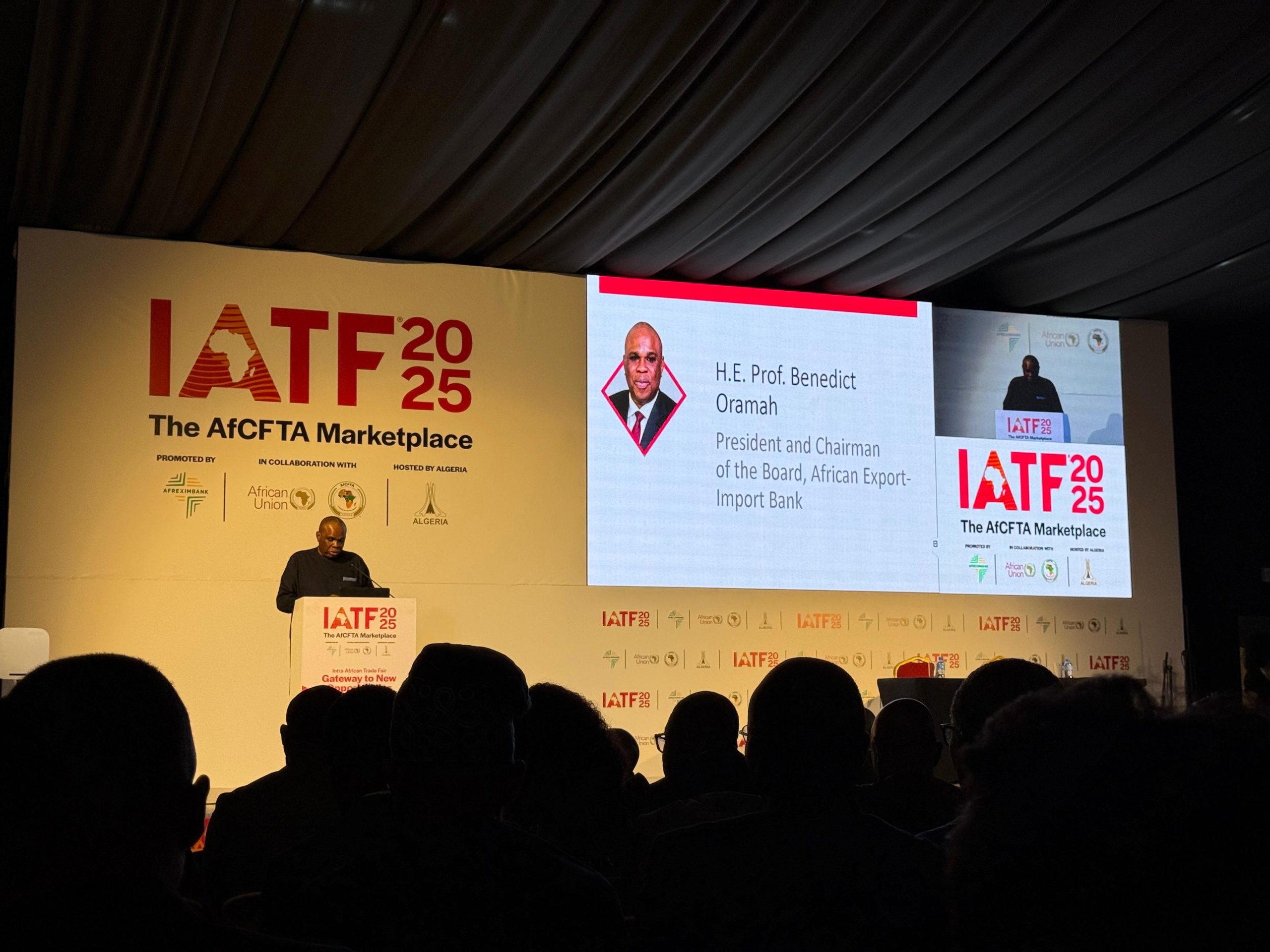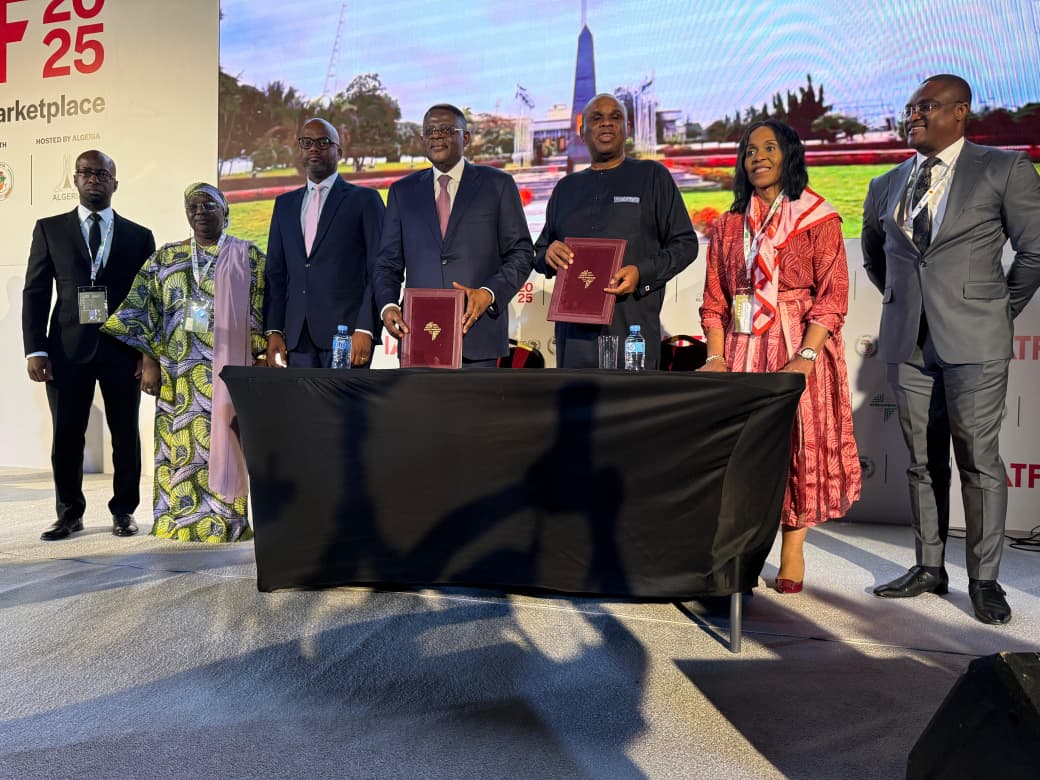At the fifth edition of the African Sub-Sovereign Government Network (AfSNET) Investment Dialogue, held in Algeria during the Inter-African Trade Fair 2025, African leaders announced a landmark $2 billion facility designed to strengthen sub-sovereign governments and mobilize private sector investments across the continent.
The event brought together governors, premiers, mayors, and industry leaders to address Africa’s persistent development disparities and chart a path toward more inclusive growth.
Addressing Africa’s Development Paradox
Despite encouraging economic performance in recent years, with per capita income rising from approximately $1,900 in 2016 to $2,500 in 2024, Africa faces a troubling paradox.
As Afrexim Bank President Professor Benedict Orama noted during his keynote address, reports from the World Bank and Oxfam indicate that “the benefits of unprecedented economic growth have gone to a tiny few, increasing the gap between the richest and the poorest.”
This disparity is starkly illustrated by the economic trajectory of Zambia, which was once richer than Chile in copper exports. Today, the average Zambian income is less than one-tenth that of Chileans, with regions like the copper belt falling even further behind the capital city of Lusaka. As Orama referenced from economist Paul Collier’s work, “Not only has Zambia become a left-behind country, but within it, there are regions exemplified by its copper belt that have been more extremely affected.”
Such internal disparities reflect a broader continental trend that the AfSNET initiative aims to address through a fundamental shift from centralized to decentralized development planning.
The Strategic Role of Sub-Sovereign Governments
AfCFTA Secretary-General Wamkele Mene emphasized that sub-sovereign governments are “uniquely positioned to support cross-border trade, industrial development, and renewable energy investments.” These regional and local authorities are viewed as essential to realizing the objectives of the African Continental Free Trade Area, particularly in connecting rural communities to urban economies and unlocking regional potential.
“Sub-sovereign governments are essential to realizing the objectives of the AfCFTA, which is why we actively participate and support this initiative,” Mene stated during the conference proceedings.
The platform serves as a vital space for sub-sovereign governments to showcase bankable investment projects to global investors and engage stakeholders relevant to shaping sub-national initiatives aimed at driving industrial development and cross-border trade.
Three Key Priorities for Success
Mene outlined three critical priorities for maximizing the impact of sub-sovereign development:
- National Policy Alignment: National governments should promote decentralization and synchronize policies with the unique strengths of their sub-sovereign entities. This necessitates a thorough evaluation of the significant role that regional and local governments have in strategies for industrial development.
- Active Sub-Sovereign Participation: Sub-sovereign administrations need to fully embrace and engage in development platforms by utilizing tools like special economic zones, industrial growth strategies, and the recently introduced trade finance facility.
- Development Finance Support: Financial institutions and development partners must persist in offering essential assistance at the sub-sovereign level, especially in infrastructure projects and initiatives that facilitate trade
Breakthrough in Special Economic Zones Policy
A significant policy breakthrough announced at the conference addresses what officials described as a critical “anomaly” in Africa’s trade framework. Previously, African countries welcomed goods from special economic zones in third countries at preferential rates, often displacing domestic production and markets.
The Assembly of Heads of State and Government of the African Union has now adopted regulations that place special economic zones at the center of Africa’s industrial development. All goods produced in African special economic zones will henceforth enjoy full preferences and benefits under the AfCFTA framework.
This policy shift is expected to boost manufacturing capacity across the continent, with anticipated positive results in Benin, Togo, Kenya, South Africa, Morocco’s Tangier, Egypt, and other locations where governments have invested in productive capacity with African development banks and regional stakeholders.
Implementation in Action: The Oyo State Model
As a concrete example of this approach, Mene announced that the AfCFTA Secretariat and Oyo State in Nigeria will officially launch the AfCFTA Strategy for Implementation specifically designed for the benefit of Oyo State and its people. This initiative demonstrates how sub-national entities can establish themselves firmly within the AfCFTA ecosystem, contributing to accelerated development and job creation.
The strategy includes identifying and developing industrial parks, special economic zones, and quality assurance centers—all critical pillars of effective AfCFTA implementation at the sub-sovereign level.

Wamkele Mene, AfCFTA Secretary-General
Algeria as a Model for Decentralized Development
The choice of Algeria as the conference host was strategic and instructive. Since the 1980s, Algeria has steadily moved away from centralized planning, resulting in the continent’s lowest inequality index as measured by the Gini coefficient. This places Algeria among the top ten African countries with the least wealth disparity.
While regional disparities in economic outcomes still exist, the gaps in Algeria are notably narrower than those found in many other African nations. The country’s extensive Mediterranean port network, burgeoning renewable energy sector, and modernizing industrial base present significant opportunities for fostering strong regional and continental trade and investment collaborations.
Conference participants were encouraged to leverage this opportunity to share development aspirations and projects, forging lasting connections with Algerian partners and taking advantage of the country’s strategic position linking North African, Mediterranean, and sub-Saharan markets.
Supporting Infrastructure and Mechanisms
The conference highlighted several key enablers that are essential to the success of sub-sovereign development initiatives:
- The Transit Guarantee Scheme for facilitating cross-border trade
- Strategy for Industrial Development leveraging Special Economic Zones
- African Development Bank’s Africa Trade Gateway platform
- Pan-African Payment and Settlement System for seamless transactions
- Automotive Sector Strategy and other capacity-building initiatives
These mechanisms, combined with the $2 billion trade finance facility, provide sub-sovereign governments with comprehensive tools to drive local development while contributing to continental integration objectives.
The Path Forward: From Periphery to Center
The AfSNET platform represents a fundamental philosophical shift in African development thinking. As President Orama emphasized, “We believe that for most of our countries, development will come from the periphery and not the center.”
This approach recognizes that sustainable, inclusive development must be driven by regional and local authorities who understand their communities’ specific needs, comparative advantages, and potential. The $2 billion commitment, coupled with policy reforms and enhanced cooperation frameworks, provides unprecedented support for this bottom-up development model.
Building Sustainable Public-Private Partnerships
The conference emphasized that partnerships between the public and private sectors will be essential for mobilizing the resources needed to achieve infrastructure development, special economic zones, and sustainable development goals.
The AfSNET initiative focuses on positioning sub-sovereign governments at the core of Africa’s economic transformation to guarantee that young individuals and small to medium enterprises (SMEs) are integral to the continent’s development strategy.
As Secretary-General Mene noted, “The evidence is clear: trade and investment are catalysts for job creation, innovation, and improved quality of life.” This makes platforms like AfSNET imperative for engaging young people and SMEs while addressing pressing challenges such as rapid urbanization, youth unemployment, and rural-urban migration.
Continental Integration Through Regional Empowerment
The success of the AfCFTA depends significantly on the active participation of sub-sovereign governments. These entities serve as crucial intermediaries connecting rural communities to urban economies and regional markets to continental trade networks. Their role in developing trade routes that integrate goods and services produced in special economic zones into the broader AfCFTA market is particularly vital.
As Africa continues its journey toward greater economic integration, the commitments made at the Algeria conference represent a significant step toward ensuring that no region is left behind in the continent’s economic transformation. The focus on empowering sub-sovereign governments reflects a mature understanding that continental success depends on regional prosperity and local empowerment.
—
The African Sub-Sovereign Government Network continues to serve as a vital platform for amplifying the voices of sub-sovereign governments in development policy, unlocking new opportunities, and driving sustainable trade and growth across Africa.

